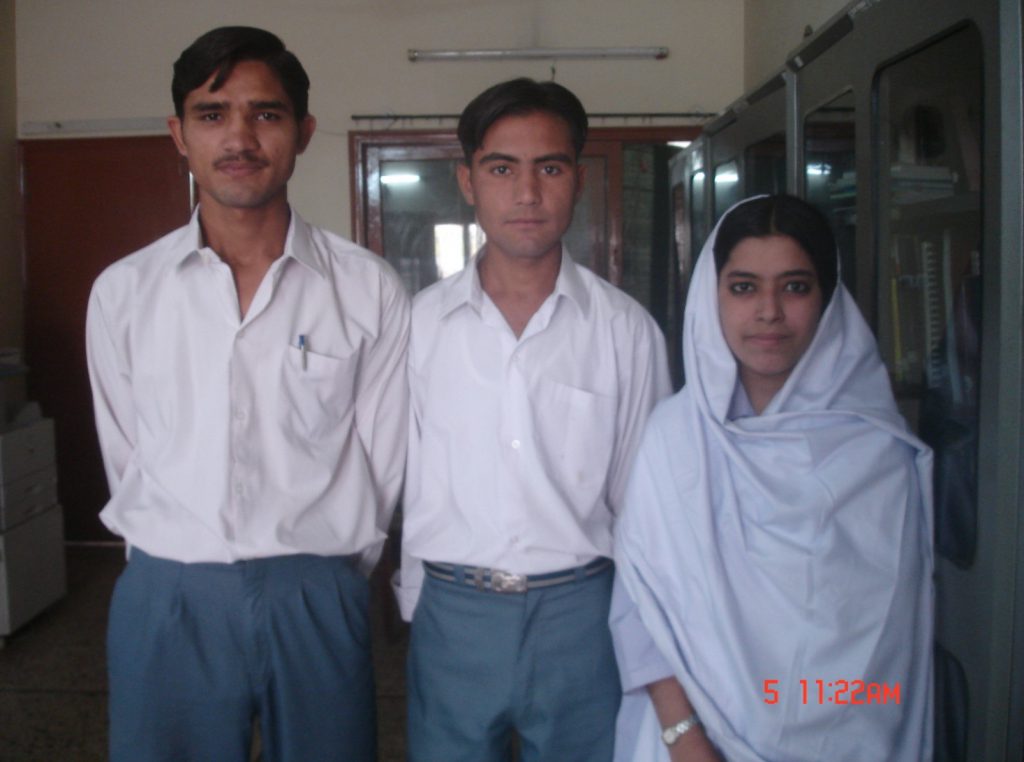In the early years of Roots, we had run numerous non-formal education centers in Qasbah and rural Sindh. As the non-formal education centre (NEC) was launched in Qasbah in June, 1998, it was decided to find philanthropic sponsorship for individual children who wanted to enter formal schooling. Our policy was to have equal number of boys and girls with a bias for girls both in the NECs as well as for the scholarship program.
In the early years of Roots, we had run numerous non-formal education centers in Qasbah and rural Sindh. As the non-formal education centre (NEC) was launched in Qasbah in June, 1998, it was decided to find philanthropic sponsorship for individual children who wanted to enter formal schooling. Our policy was to have equal number of boys and girls with a bias for girls both in the NECs as well as for the scholarship program. We had started the NECs for working children. With structural adjustment policies making the lives of the working class a misery, school dropout rate was high. In addition, child labor was rampant. We had started advocating for children’s education as critical and opened the NEC in Qasbah running two shifts, late afternoon and evening; it was the only time that the working children were available. It was a two-year program with the aim of ensuring that children learnt to read and write Urdu, with some rudimentary reading and writing skills in English and Arithmetic. Children, who were able to complete the two years and were willing to go to formal school, were admitted to a local private English-medium school. Roots would ask for pledges from friends of Roots, of Rs 3,500 per year per child. If parents would come to us from Qasbah asking for scholarship for their boys we would tell them that they should support their male children themselves and we will support their daughter(s). Though NECs were also opened in six villages in Tando Mohammad Khan district, scholarships were not offered as the villages were far away from the local towns. Parents were not willing to send girls so far away. Later scholarships were offered in Tando Mohammad Khan town where three girls passed primary school; only one girl remains who is now in Class 9 and is doing well.
The NECs were phased out from 2007 but the scholarship program continues. From 2000 to now, Roots has put at least 30 children through primary education of which more than half were girls. Four girls have passed matriculation, with two passing their intermediate education (which is 12 years of schooling). Of these, three girls are now working with one earning Rs 20,000 per month. The others are teaching in local schools, and/or coaching children at home; many are part of the women’s collective. These young women have also admitted their own children including girls in school. Currently, we are asking for Rs 7,500 per child per year pledge. This amount includes all expenses including school curriculum, uniform and bag for the child.


